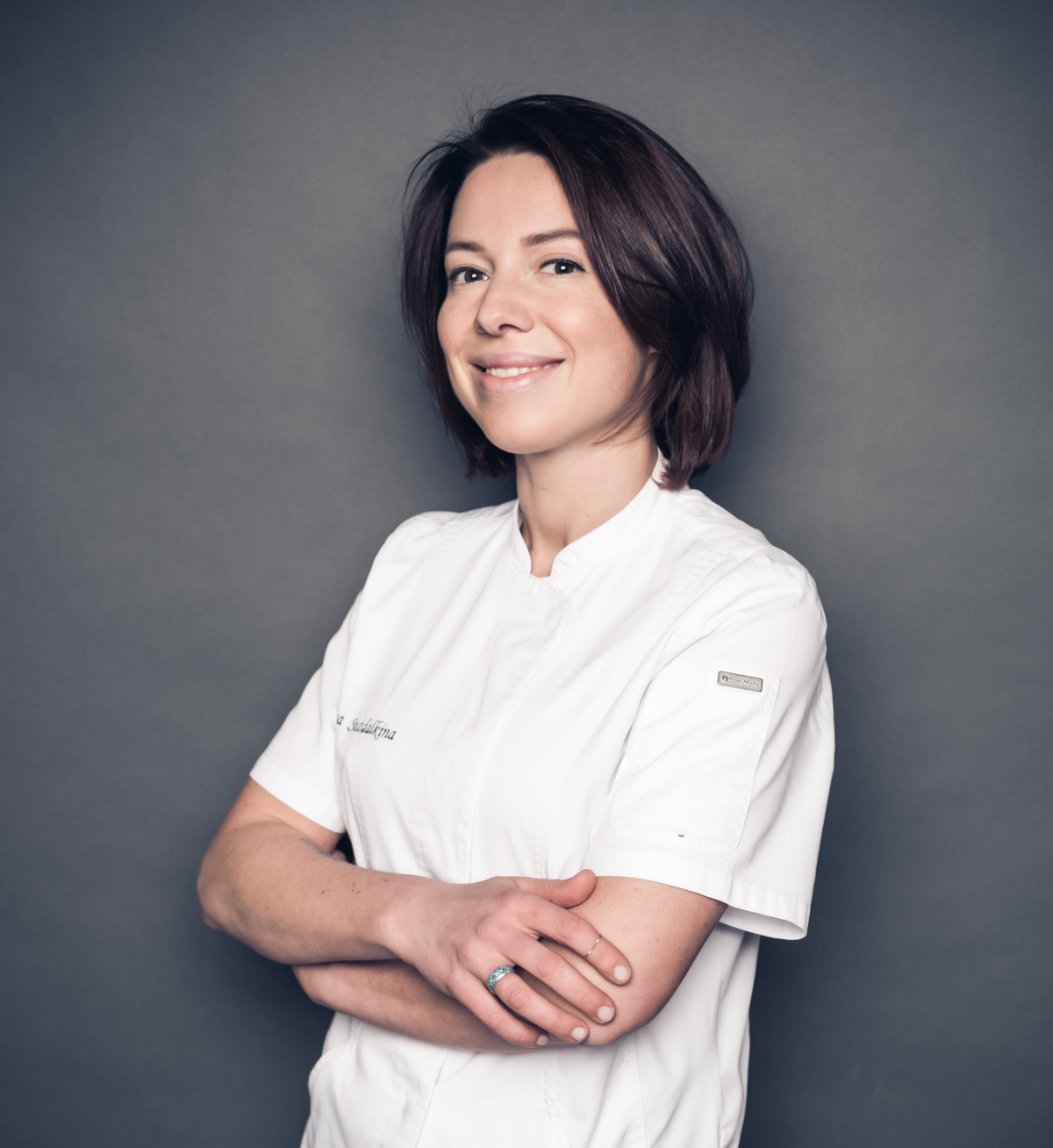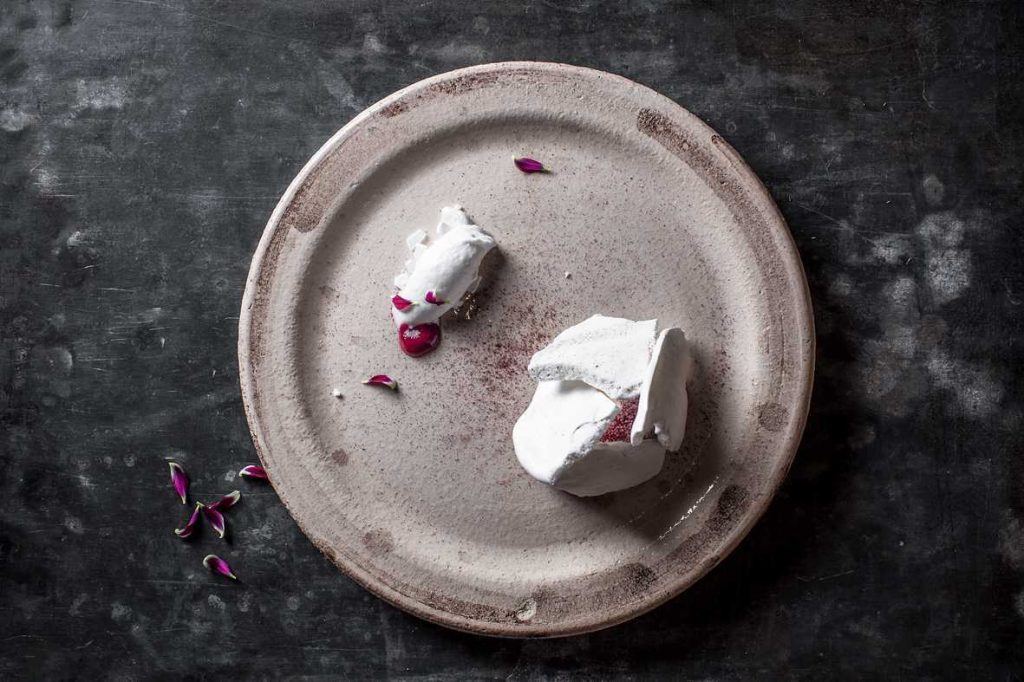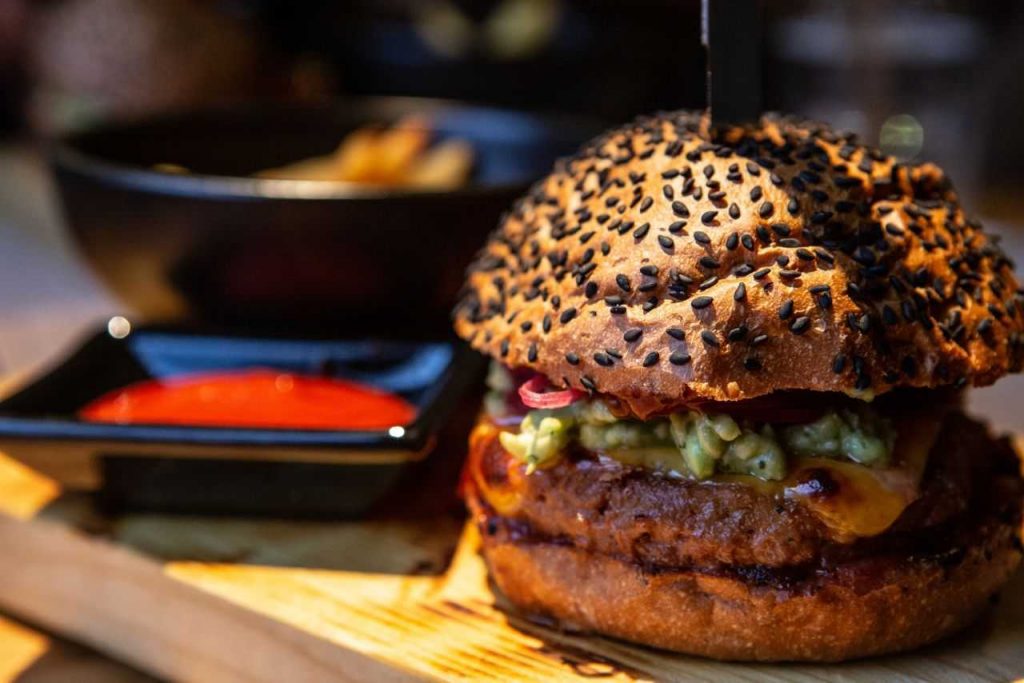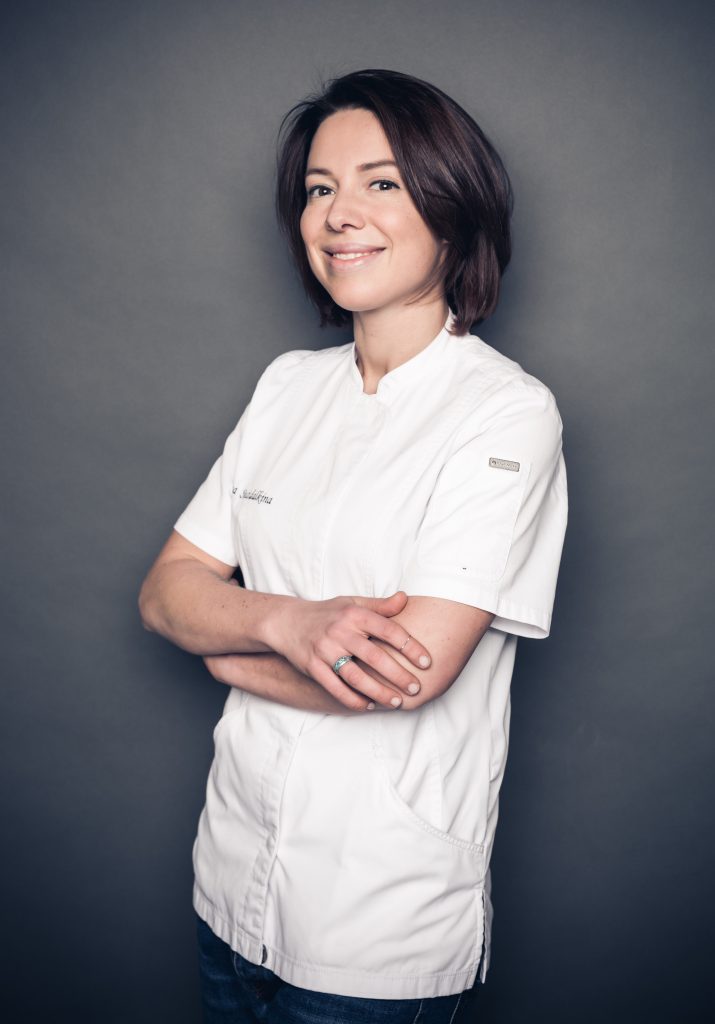Olga Suzdalkina: “Millions are starving. Few know how to combine ingredients in the right way to come up with tasty and nourishing food.”
In magical Moscow we met with Olga Suzdalkina who was a chef at the Moscow restaurant Chicha belonging to the White Rabbit Family holding. Among other things, we discussed the dramatic change in Olga’s career, current trends in the restaurant business, and what an ideal restaurant is.

You have a unique approach to nutrition. You’ve been vegetarian for over 15 years or maybe flexitarian would be a more accurate term, as I see it now
I don’t want to put a label on it. My professional ambition as a chef is to develop my own style. And that means listening to my own body. I can have some fish if I feel like it. I never eat land-animal meat, though. I just don’t enjoy it, and there are many other aspects to it. But I do try meat and don’t spit it out as some vegan chefs do. I believe that those who need to eat meat should do that sometimes. I don’t, so I don’t eat it.
I think that we, as humans, need more green food. I’ve had 16 years of experience in this. It’ll be 17 soon. I don’t know what to call this style: it’s lactose-free but with omega-3, lots of fiber, vegetables, cereals and complex carbohydrates. In daily life, I even removed all milk from my house. My kids drink oat milk.
My mission as a chef is to do people good. I do service work, I’m a craftsperson. I’m not a rock star. I serve the people who come to me and trust their time and stomachs, so that they can leave healthier than they’d arrived. I’m not a physician, although I aspire to that, too. However, I still have a lot of knowledge to gain in order to have the right to talk about it. At the Moscow Gastronomic Festival, I created a set dedicated to health. I composed vitamins and minerals in such a way that they didn’t antagonize one another and ensured high absorption of vital nutrients.
Why are there only a few vegan chefs and high-end restaurants in Russia? For example, there are no vegan restaurants in the Top 50 Where To Eat rating.
Because in terms of business and making profits, you have to be an altruist to open that type of place. That’s one thing.
From a chef’s point of view, it’s not about the fact that there are fewer vegan chefs. In general, hard-working people are rare. Everyone wants recognition, forgetting that our task is to constantly learn to be able to serve the people who come to us well.
That’s the only problem — no one wants to learn. Everyone wants everything immediately. To claim a title, you have to have experience and I have a solid one. I can say that I’m well versed in vegan cuisine because I’ve mostly been eating vegan myself for almost 17 years, 5 or 6 days a week. Sometimes more, sometimes less. Still, when I attend other chefs’ tasting sessions, I try the meat out of respect. I never want to stop learning.

So, you’re saying that some people may fail to further develop their skills?
Yes. In vegan cuisine, you must know a lot about nutrition. People who think tomato-and-cucumber salad is all there is to veganism can damage their health in a big way. Carbohydrate-only diets are also harmful. Knowing the balance comes with a lot of experience through trial and error or with proper education. Most people have neither. That’s why knowledgeable chefs are rare. They don’t teach that in schools. And if they do, they only teach how to prepare certain meals. But in order to create something new, one needs to know what ingredients to use to ensure that eating the end-result will not lead to weight gain or health problems.
Would you recommend those of your colleagues who have only a few plant-based dishes on their menu to add more? And if so, what would be your main argument?
Our work is to serve. And it’s very important for us to show the people who trust us what is possible. The world is changing very quickly. Prices are rising, but paychecks aren’t keeping up. Millions are starving. Few know how to combine ingredients in the right way to come up with tasty and nourishing food.
As chefs, our mission is to show the people who come to us what options they have available.
This is why we can’t just add grilled vegetables to the menu and call it a day. That would be nothing new. There should be something more. It could be wok or something like that. There are many options. And if you have more experience, you can prepare grilled cauliflower, for example. And your guests will think, “Great! I’m gonna go home and try to cook it myself. Or I might come back later.”
Education is part of our mission. Showing people that food can be tasty, fun, fast, healthy, and environmentally friendly. It can even be cheaper in some cases. Cost-efficient!

In one of the interviews you mentioned the idea of developing a cuisine based solely on Russian superfoods such as buckwheat, linseed, berries. Do you think it’s possible that the White Rabbit Family will open a “green” restaurant and put you in charge?
I think Western marketing practices are still superior to ours. We have lived behind an iron curtain for a very long time. When you got your hands on things like jeans, chewing gum, Coca-Cola, you felt very lucky. Hence the idea that cool things always come from abroad.
Let’s not forget that linseed has a much better chemical composition than chia seeds. Cranberries are in no way worse than goji berries. Siberia and the Altai store incredible amounts of superfoods packed with health benefits. In time, we will adjust. Changes like these don’t happen overnight.
What happened once the curtain had fallen? Italian, Japanese, French cuisine began to develop immediately. After sanctions were imposed, this practice began to die down. But we‘re already looking into the future. We have respect for our ancestors. At some point, we will come to realize that we have lots of good stuff here.
Our nature is fantastic and there’s a lot to explore.
It’s hard to find local products in the winter months, though.
You can dry herbs. Make pickles. And then there’s fermentation. This trend has been going on for years. Still, we should think more about the benefits rather than the fashion.
This way, practices like fermentation, mastered by our grandparents, will not be lost. We shouldn’t forget our roots!
What trends have you seen this year and what will come next?
Boris Zarkov (the founder of the White Rabbit Family — Ed.) has a lot of experience and a special knack for spotting trends. He knows all about past and future tendencies. I don’t. I’m locked up in my own dreams. I only think about delving deeper into my area of expertise. The plant-based and healthy eating trends are apparent. Compassion is also a thing now.
Initially, no one cared about chefs. Now, chefs become the new rock stars. People want to see them at work. That’s why open kitchens have become so popular.
Today, at the fourth stage, people seem tired of all this endless communication and media buzz. They want connection: to visit a place and talk with the chef, not only through their food but in person as well. There’s a reason why chefs in European restaurants approach guests personally. It’s not about fashion, it’s about sharing what’s in your soul. Empathy is a trend in itself.
Apart from this, I think Italian cuisine will become popular again. After all, Italian food is delicious and straightforward. For some reason, it has been less present in Moscow lately.

I will do my best to help these trends growing. I’m also determined to find out how to promote healthy eating. I genuinely love people. I’m not trying to create an artificial image.
When I first started, I had no idea what I wanted exactly. I knew I loved cooking. But I didn’t expect this outcome. And now I’m at a point where I want to serve my heart on a plate. In fact, I could’ve pulled it out and given it to others if it weren’t for my children. My only intention is to do people good. And they sense that and trust me.
Blog








